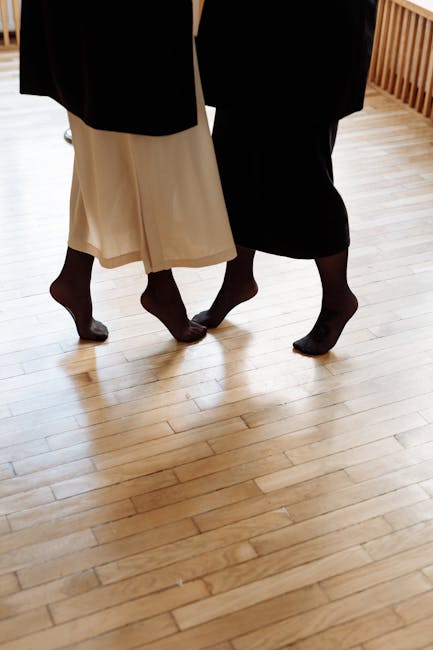The Role Of Patience In Nurturing Friendships
Friendships are like gardens—they need time, care, and patience to truly flourish. Without patience, misunderstandings can grow like weeds, choking the connection. But with it, friendships can thrive, even in the face of challenges. So why is patience such a key ingredient in building strong, lasting bonds? Keep reading to discover how this often-overlooked virtue can transform your relationships and help you cultivate deeper connections.
Key Takeaways
- Patience is essential for building trust and understanding in friendships.
- It helps resolve conflicts and strengthens emotional bonds.
- Practicing patience can lead to personal growth and more resilient relationships.
Introduction to Patience in Friendships
Definition of Patience in the Context of Relationships
Patience, in simple terms, is the ability to stay calm and composed when things don’t go as planned. In friendships, it means giving your friends the time and space they need, even when it’s inconvenient or frustrating.
It’s about understanding that everyone has their own pace, quirks, and struggles. Patience allows us to accept these differences without judgment.
Importance of Patience in Building and Maintaining Friendships
Imagine trying to bake a cake but pulling it out of the oven too soon. The result? A gooey mess. Friendships are no different. They need time to develop trust, understanding, and shared experiences.
Without patience, small disagreements can escalate, and misunderstandings can fester. But with it, you create a safe space where both you and your friend feel valued and understood.
Overview of the Blog Post
This blog will explore how patience strengthens friendships, practical ways to practice it, and the challenges you might face along the way. By the end, you’ll see why patience isn’t just a virtue—it’s a superpower for nurturing meaningful connections.

The Role of Patience in Strengthening Friendships
How Patience Fosters Trust and Understanding
Trust is the cornerstone of any friendship, and patience is the glue that holds it together. When you’re patient, you show your friend that you value their feelings and perspectives.
For example, if a friend is going through a tough time and isn’t ready to talk, your patience can reassure them that you’re there when they’re ready. This builds trust and deepens your bond.
The Impact of Patience on Conflict Resolution
Disagreements are inevitable in any relationship. But how you handle them makes all the difference. Patience allows you to listen without interrupting, giving your friend the chance to explain their side.
It also helps you stay calm, even when emotions are running high. This creates an environment where conflicts can be resolved constructively, rather than turning into shouting matches.
Patience as a Foundation for Long-Term Connections
Friendships aren’t built overnight. They require years of shared experiences, mutual support, and, yes, patience.
By being patient, you show your friend that you’re in it for the long haul. This creates a sense of stability and security, which is essential for any lasting relationship.

Practicing Patience in Friendships
Recognizing and Managing Personal Triggers
We all have triggers—those little things that test our patience. Maybe it’s a friend who’s always late or one who takes forever to reply to texts.
The first step is recognizing these triggers. Once you’re aware of them, you can work on managing your reactions. Take a deep breath, remind yourself that nobody’s perfect, and focus on the bigger picture.
Strategies for Staying Calm During Disagreements
When tensions rise, it’s easy to lose your cool. But staying calm is crucial for resolving conflicts.
Try counting to ten before responding or taking a short break to collect your thoughts. This gives you time to process your emotions and respond thoughtfully, rather than reacting impulsively.
The Importance of Active Listening and Empathy
Patience isn’t just about waiting—it’s about how you wait. Active listening and empathy are key components.
When your friend is speaking, really listen. Don’t just wait for your turn to talk. Show empathy by acknowledging their feelings and validating their experiences.
For more tips on building strong friendships, check out this guide.

Patience and Support in Friendships
How Patience Helps Friends Navigate Tough Times
Life isn’t always sunshine and rainbows. Sometimes, your friends will face challenges that test their strength—and yours.
Patience allows you to support them without rushing the process. Whether they’re grieving a loss or dealing with a personal crisis, your patience can be a source of comfort and stability.
The Role of Patience in Offering Emotional Support
Emotional support isn’t about fixing problems; it’s about being there. Patience helps you resist the urge to offer quick solutions and instead focus on listening and understanding.
This creates a safe space where your friend feels heard and supported.
Balancing Patience with Setting Boundaries
While patience is important, it’s also crucial to set boundaries. Being patient doesn’t mean tolerating disrespect or neglecting your own needs.
Communicate your boundaries clearly and respectfully. This ensures that your friendship remains healthy and balanced.
For more on maintaining healthy relationships, visit this resource.

Challenges to Patience in Friendships
Misunderstandings and Communication Breakdowns
Even the best friendships face hurdles. Misunderstandings and poor communication can test your patience.
The key is to address issues head-on, rather than letting them simmer. Open, honest communication can resolve most problems before they escalate.
Social Challenges Faced by Individuals with ADHD
Impulsivity and Its Impact on Friendships
For individuals with ADHD, impulsivity can make patience a challenge. Blurting out thoughts or interrupting conversations can strain relationships.
Strategies for Managing ADHD-Related Challenges
If you or your friend has ADHD, understanding and patience are crucial. Simple strategies like setting reminders or practicing mindfulness can help.
For a deeper dive into ADHD and friendships, check out this article.
Overcoming Frustration and Maintaining Perspective
Frustration is a natural part of any relationship. But patience helps you see the bigger picture.
Instead of focusing on minor annoyances, remind yourself of the qualities that make your friend special. This perspective can help you stay patient, even during tough times.

The Benefits of Patience in Friendships
Strengthened Emotional Bonds
Patience creates a sense of trust and security, which strengthens emotional bonds. Your friend knows they can count on you, no matter what.
Increased Resilience in the Relationship
Friendships built on patience are more resilient. They can weather storms and come out stronger on the other side.
Personal Growth Through Practicing Patience
Practicing patience isn’t just good for your friendships—it’s good for you. It teaches you to be more understanding, empathetic, and emotionally mature.
For more on fostering meaningful relationships, explore this article.
Conclusion
Recap of the Importance of Patience in Friendships
Patience is the unsung hero of friendships. It fosters trust, resolves conflicts, and strengthens emotional bonds.
Encouragement to Cultivate Patience in Daily Interactions
Cultivating patience isn’t always easy, but it’s worth the effort. Start small—take a deep breath, listen more, and react less.
Final Thoughts on Nurturing Meaningful Connections
Friendships are one of life’s greatest treasures. By practicing patience, you can nurture these connections and create bonds that stand the test of time.
So, the next time your patience is tested, remember: good things come to those who wait.

FAQ: The Gentle Art of Patience in Nurturing Friendships
Why is patience important in building strong friendships?
Patience allows individuals to understand and accept each other’s differences, fostering trust and deeper connections. It creates space for growth and mutual respect, which are essential for lasting friendships.
How does patience help during conflicts in friendships?
Patience helps you approach conflicts calmly, giving both parties time to process emotions and communicate effectively. This can lead to healthier resolutions and prevent unnecessary misunderstandings.
Can impatience harm a friendship?
Yes, impatience can lead to frustration, miscommunication, and unrealistic expectations, which may strain or even damage a friendship over time.
How can I practice patience with a friend who has different communication styles?
Understanding their communication preferences and giving them time to express themselves can help. Active listening and empathy are key to bridging communication gaps.
Does being patient mean tolerating toxic behavior in a friendship?
No, patience is about understanding and supporting each other, not enduring harmful behavior. Setting boundaries is essential to maintaining a healthy friendship.
How can patience improve emotional intimacy in friendships?
Patience allows friends to open up at their own pace, creating a safe space for vulnerability. This deepens emotional bonds and strengthens the friendship.
What are some practical ways to cultivate patience in friendships?
Practice mindfulness, manage expectations, and remind yourself of the value of the friendship. Taking deep breaths and focusing on the bigger picture can also help.
Can patience help in rebuilding a friendship after a fallout?
Yes, patience is crucial for healing and rebuilding trust. Giving each other time to reflect and gradually reconnect can pave the way for reconciliation.
How does patience contribute to personal growth within friendships?
Patience teaches you to be more understanding, empathetic, and adaptable. These qualities not only enhance friendships but also contribute to your overall personal development.
Is patience a skill that can be learned for better friendships?
Absolutely! Patience is a skill that can be developed through practice, self-awareness, and a genuine desire to nurture meaningful relationships.



